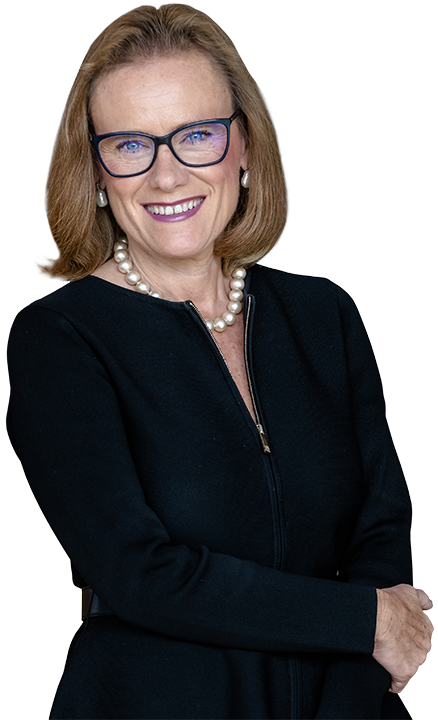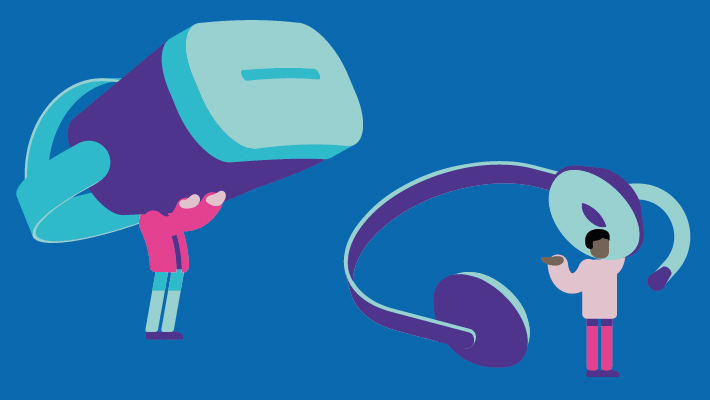
All eyes on
sustainability
What we’re doing today to ensure a better tomorrow
Values such as courage, respect, responsibility, and transparency have defined our entrepreneurial actions for generations. We aim to use science and technology as a force for good to solve many of humanity's most pressing challenges. Our new sustainability strategy sets us on this path.
Sustainability is a vital element of our business and a responsibility we want to fulfill every day. Through our innovation power, we strive to create long-term value for society: By fostering human progress for more than one billion people, achieving climate neutrality by 2040 and reducing our resource consumption.
Belén Garijo
Vice Chair of the Executive Board and Deputy CEO of Merck

No longer simply a trend
Although the term sustainability did not exist 350 years ago, responsible use of resources and social responsibility towards our employees have always played a key role for us. Over the years, societal values have changed and so too have the needs of our customers. This is precisely what has given great impetus to our sustainability aspirations. The understanding of sustainability has changed with the times:
50 years ago:
sustainability
is coined as a term
Sustainability principles were formulated for the first time at the start of the 18th century. However, the buzzword “sustainability” didn’t emerge until the 1970s and 1980s. Companies started to pay attention to environmental and occupational safety aspects. But strategically, they had not yet come to grips with the topic.
20 to 30 years ago:
lack of sustainability
is a risk
Environmental accidents received media attention, thus calling the public to action. Companies found out that they risked damaging their reputations by ignoring sustainability.
Today:
sustainability
is a must
Climate change, resource scarcity, global supply chains – the challenges facing society and companies are growing. Sustainable action has proved to be necessary and calls for holistic thinking to ensure that everyone can look forward to a future worth living.
Tomorrow:
sustainability
is an opportunity
Technology and innovation provide solutions to numerous challenges associated with sustainability. Companies recognize the necessity and potential of both relying on a successful business model and contributing to society. We want to achieve human progress though our business activities. And we want to prevent our actions from generating subsequent costs for society. To do this, we rely on a uniform approach throughout our entire value chain.
Our response to the challenges of tomorrow
How we prepare for the future
For us, scientific research and new technologies are crucial for overcoming global challenges. With our medicines, we help people either to become healthy or to better manage a disease. However, in many places, people do not have sufficient access to healthcare. That’s why we are working to provide easier access to health solutions. Our semiconductor and display materials drive digitalization forward and open up new opportunities. And with our Life Science solutions, we enable life-changing research and provide scientists with the latest tools. At the same time, we achieve the optimum balance between ecological, social, ethical, and economic aspects.
Looking into the crystal ball: The world in 2040
No one can predict the future. How will global warming impact our social interactions? How will demographic and technological change shape the world? What will the supply chains of tomorrow look like? The fact is we live in a world that's becoming increasingly complex. Environmental, economic and social issues are all inextricably interlinked. How can we manage this complexity as a company and best prepare ourselves for the future?
We took an unusual approach to addressing these issues by forming a large, interdisciplinary team to imagine what life might look like in 2040. Rather than yielding conventional scenarios, this analysis resulted in four potential extreme versions of the world of tomorrow. It showed us what the fundamental risks and opportunities could be going forward and helped us develop a sustainability strategy that will address the challenges of tomorrow.
What the workshop participants think:
Jump straight to the topic:
Our new Sustainability strategy
Climate impact mitigation, resource scarcity and lack of access to medicine: These are the major challenges facing the global community – and our company. Our solution: In 2030, we will achieve human progress for more than one billion people through sustainable science and technology. Does this sound impossible? We don’t think so! After all, that is one of the three new strategic Sustainability goals that we formulated in 2020 and embedded in our corporate strategy.
Dedicated to human progress
In 2030, we will achieve human progress for more than one billion people through sustainable science and technology.
Our focus areas
Sustainable innovations and technology for our customers
Impact of our technologies and products on health and well-being
Focus SDGs
How we contribute (examples):
Creating sustainable value chains
By 2030, we will integrate sustainability into all our value chains.
Our focus areas
Sustainability culture and values
Sustainable and transparent supply chain
Securing our social license to operate in all regions
Focus SDGs
How we contribute (examples):
Reducing our ecological footprint
By 2040, we will achieve climate neutrality and reduce our resource consumption.
Our focus areas
Climate change and emissions
Water and resource intensity
Focus SDGs
How we contribute (examples):
We make sustainability measurable
How do we know how sustainable our products, technologies or business activities really are – and where do we need to start in order to improve? To answer these questions, we apply our “Sustainable Business Value” method. We have developed this tool to assess both the positive and negative impacts of our activities on society. We examine seven aspects along the entire value chain: environment and sustainability, value creation (economic value), consumer health and wellbeing, digitization and data protection, values and ethics, governance, and social engagement.
Find out moreSustainable Development Goals
Through our new Sustainability strategy, we are supporting the Sustainable Development Goals (SDGs) of the United Nations. These Sustainable Development Goals call on humanity to respect the limits of our planet and create a world where prosperity and peace are possible for all. Our aim is for our business activities to create added value that is both measurable and makes a recognizable contribution to society. Our focus is on the SDGs on which we have the strongest influence within the scope of our entrepreneurial activities.
find out moreThe SDGs sound very ambitious. How is it determined if and when they are achieved?
A
Every two years, a global conference is held at which UN member states democratically vote on whether or not a goal has been achieved.
B
The achievement of the 17 goals and their 169 targets is measured on the basis of more than 230 specific indicators. These are continuously being expanded and developed further.
C
Scenario workshops are used to determine whether the SDGs have been achieved. At these workshops, an expert committee makes forecasts and recommendations based on social trends.
The United Nations Statistical Commission was mandated to develop globally applicable indicators for the targets in cooperation with the national statistics offices. In Germany, the Federal Statistics Office (Destatis) is in charge of coordinating, collecting and publishing these data in order to document Germany’s progress regarding the SDGs.

What matters to us
By announcing our new Sustainability strategy, we took a big step forward in 2020. At the same time, we are concerned with many different issues – first and foremost the Covid-19 pandemic, which is challenging and putting us to the test. We are convinced that we have learned a lot and that this will strengthen us for the future.
Learn More